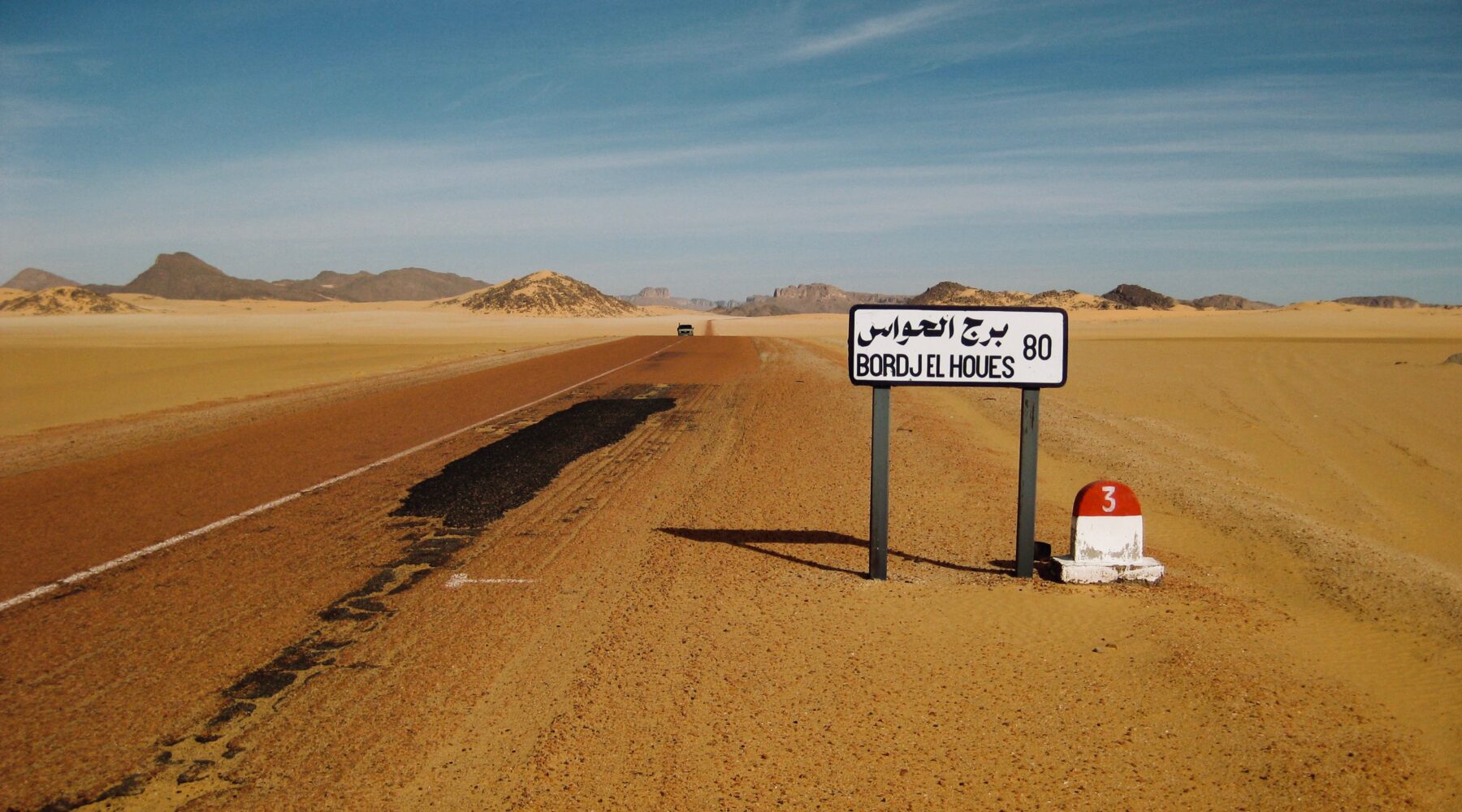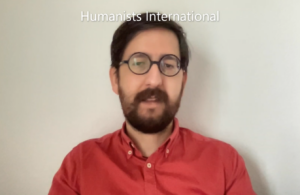


Humanists International’s MENA Advocacy & Casework Consultant, Kacem El Ghazzali, made the intervention, in response to recent reviews by the Human Rights Council of the human rights situation in Algeria and Tunisia (as part of its “Universal Periodic Review” process).
In terms of Algeria, El Ghazzali highlighted that the crackdown on religious and belief minorities in general has grown more severe and criticised the fact that, in 2020, the government arbitrarily removed the right of “freedom of conscience” from the constitution. Since that time, 13 atheists-in-hiding have reached out to Humanists International in fear of persecution on the grounds of their belief.

Kacem El Ghazzali delivers his statement by video to the Human Rights Council
El Ghazzali’s statement also noted that accusations of “disrespect for Islam” have been used as a pretext to persecute secular dissidents, and academics have been put on trial for asking questions deemed “insulting to religion.” One recent example is that of Amira Bouraoui, an activist known for her support of the Algerian pro-democracy movement; she was sentenced to two years in prison for “insulting Islam” and the country’s president.
On Tunisia, the statement highlighted how Tunisia’s new constitution has weakened key democratic safeguards, and has paved the way toward human rights abuses and greater intolerance of minority beliefs and identity. It condemned the racist remarks by President Saied, which have triggered an ongoing wave of violence and forced evictions of black African migrants in Tunisia.
The statement concluded by urging Algeria and Tunisia to “guarantee the right of all minorities, and to foster an inclusive society where everyone is able to think, believe, and express themselves freely, without fear of reprisals or censorship.”